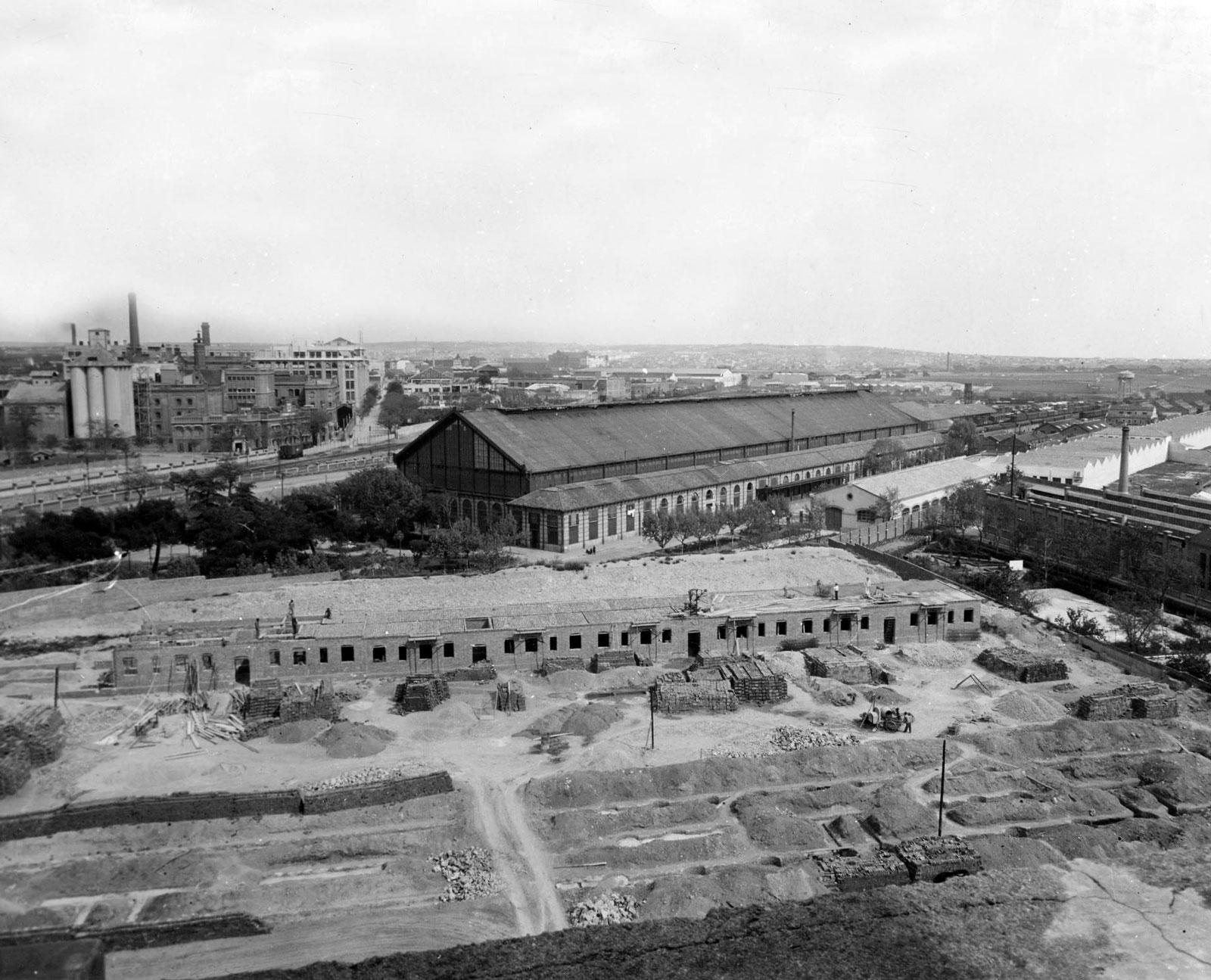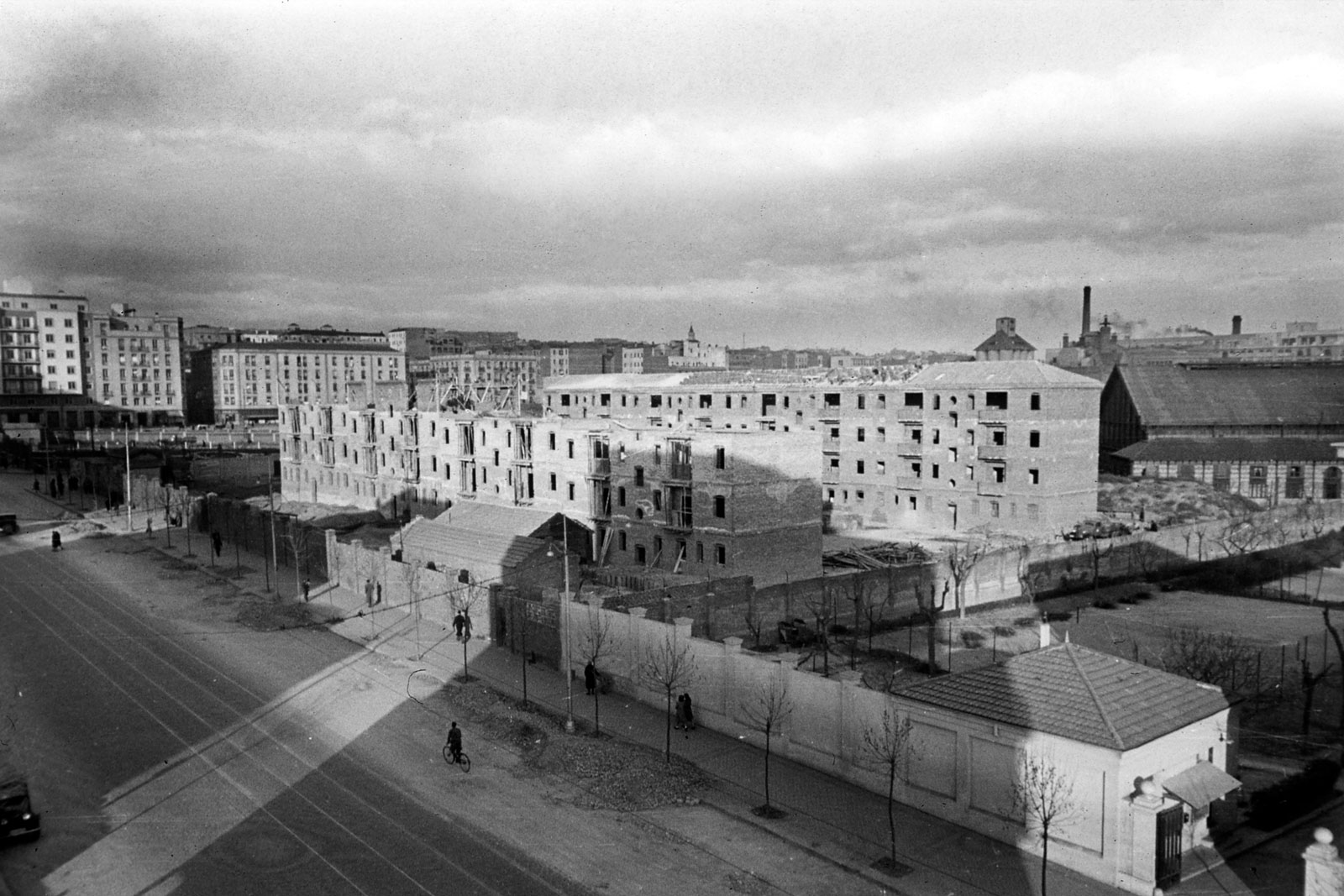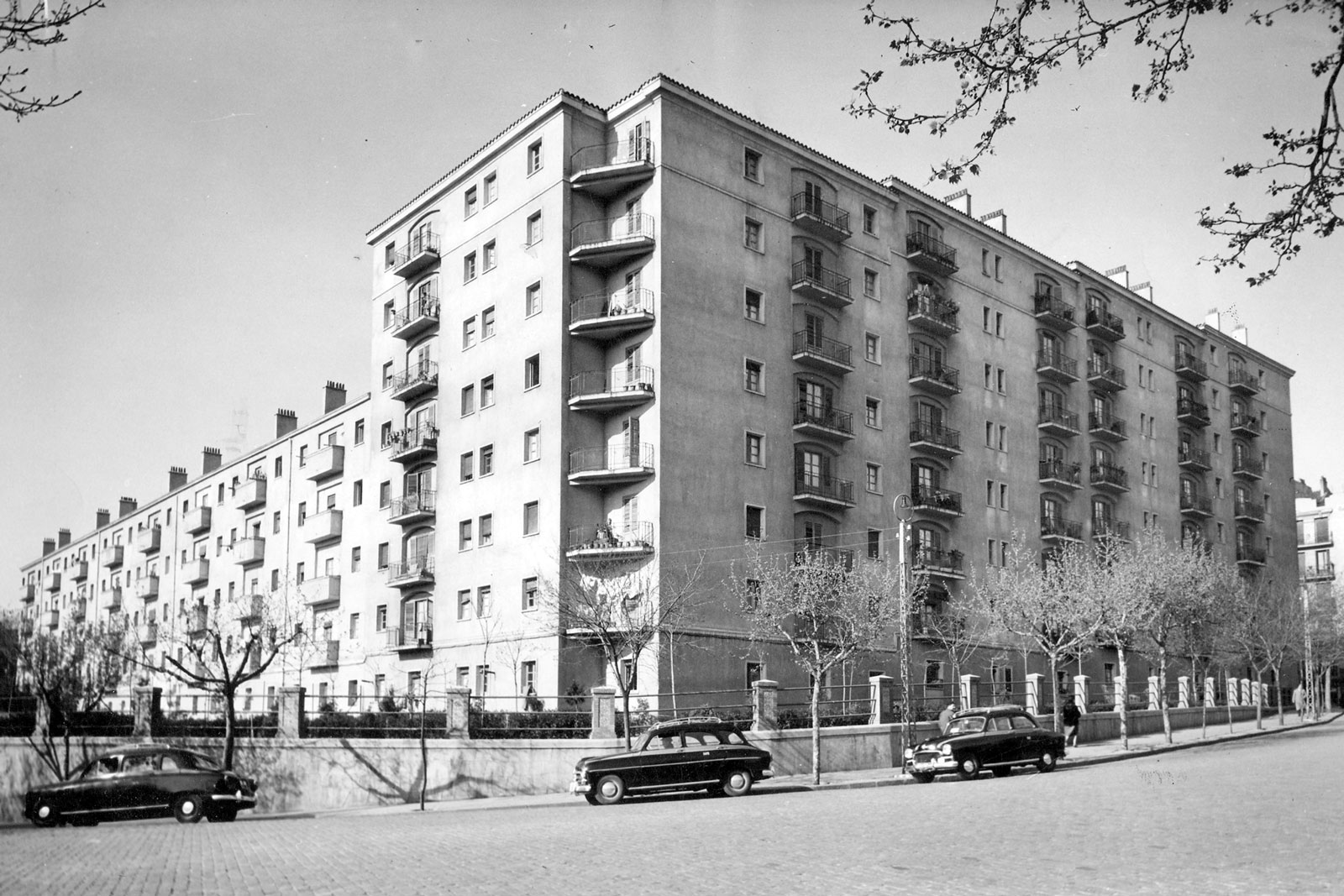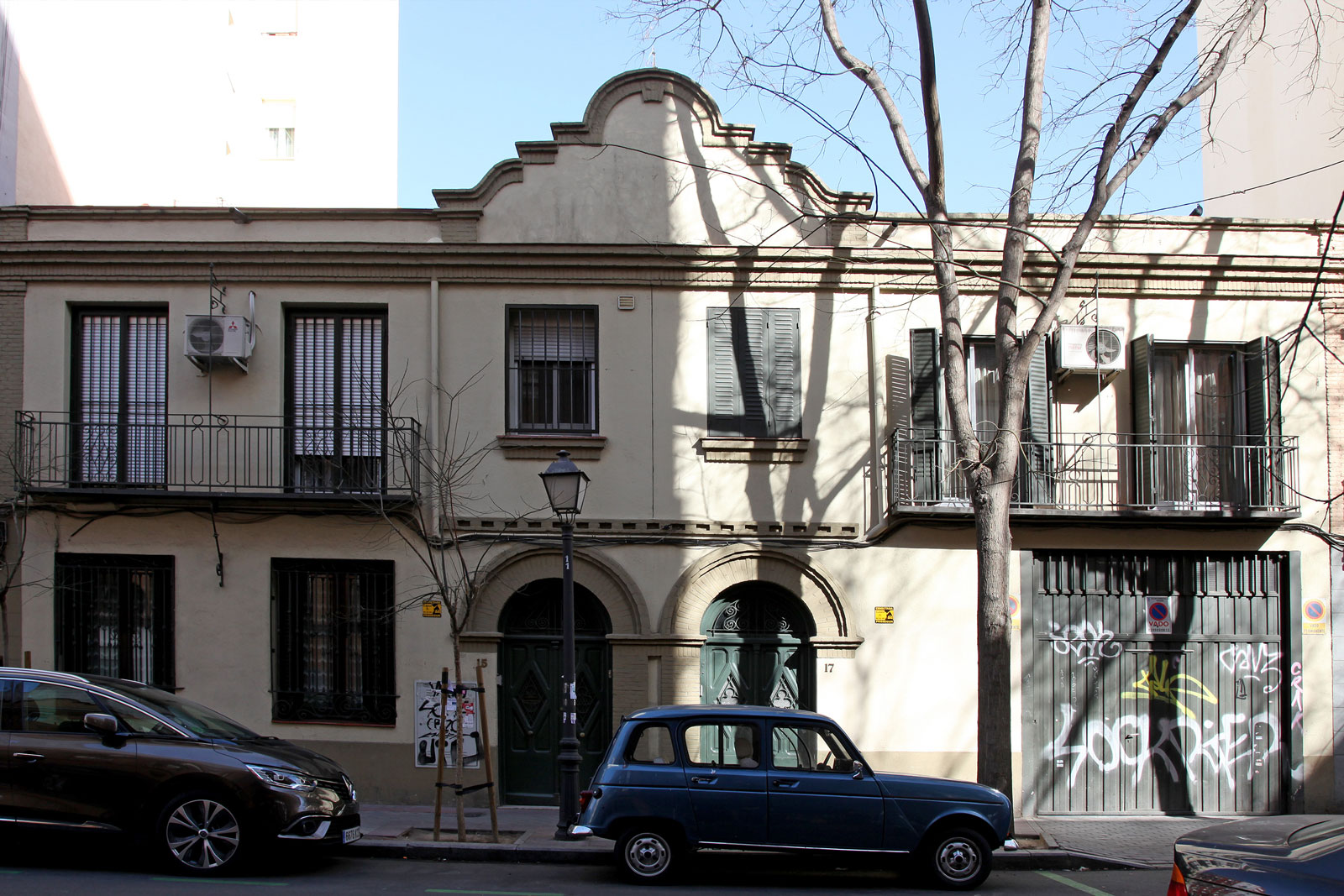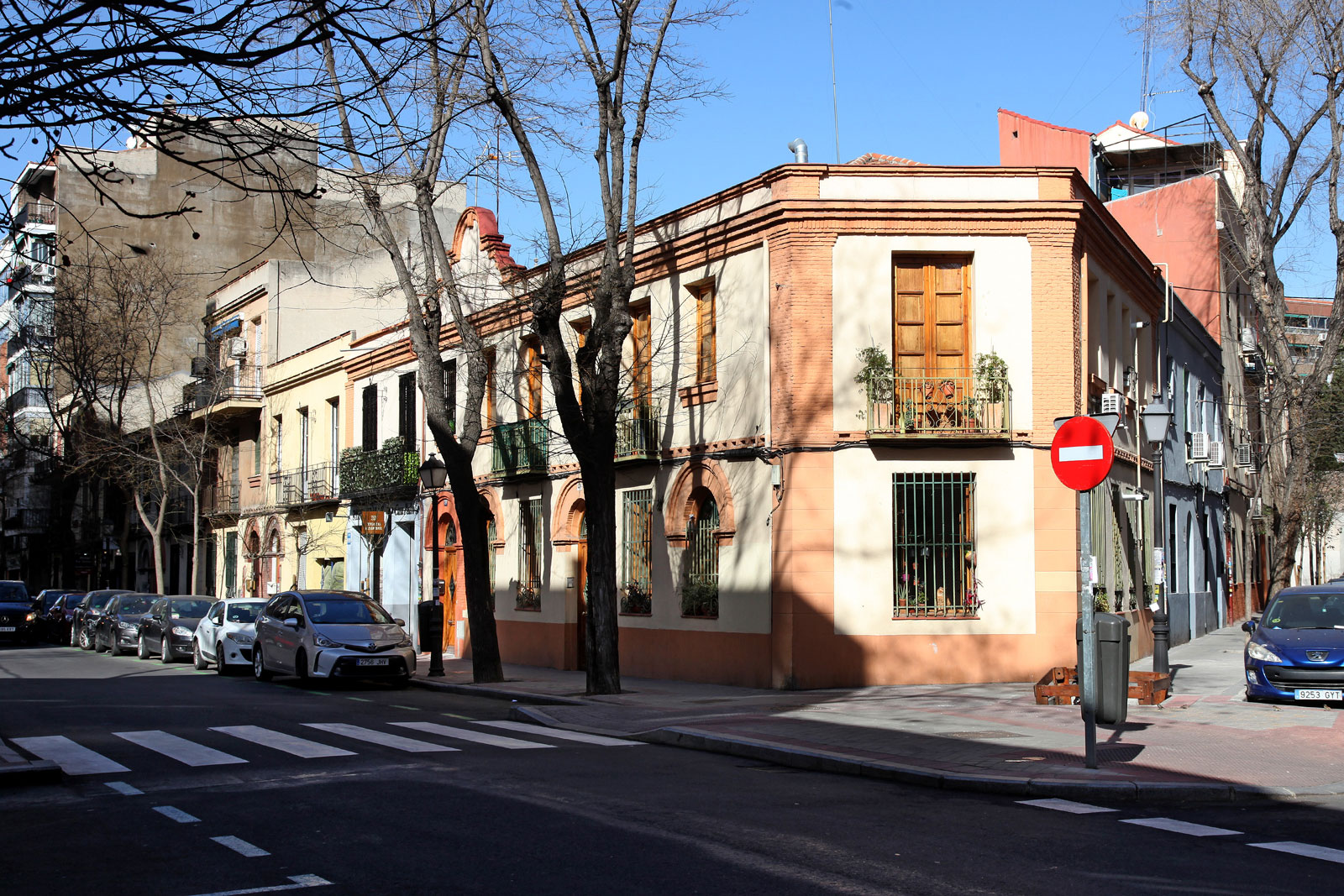Housing for railway workers
he relativity proximity of
Atocha and Delicias stations attracted many railway workers, who
settled in the surroundings of both facilities. Both Paseo de
las Delicias and its neighbouring streets were areas with a
strong presence of railway families.
At the end of the Spanish Civil War, there were more than 12,000
railway workers in Madrid. Before RENFE was established in 1941,
private railway companies only took care of the housing needs of
employees that lived in their railway villages. Workers in
larger towns provided their own accommodation by setting up
cooperatives. This was the case of the railway housing estate on
Tomás Bretón and Alonso Martos streets, near Delicias Station,
whose houses were designed by the architect Francisco Alonso
Martos between 1923-1926 and developed by an MZA railway
cooperative.
RENFE endeavoured to alleviate its employees’ housing problem.
To that end, it invoked the Act of April 19, 1939, on the
construction of social housing and, in 1943, put forward a plan
to build more than 4,000 homes throughout Spain. Between
1944-1945, RENFE was considered a company that built social
housing, signed an agreement with the National Welfare Institute
and the National Housing Institute, and was granted a loan to
carry out the planned construction.
This is the context surrounding the construction of the blocks
of rented flats for RENFE employees, designed by the architect
Alfonso Fungairiño, on the site of Las Delicias sports ground.
Construction began in December 1947 and the first flats were
built by early 1950. Other flats were completed and handed over
in successive years, attaining the number of 248 in 1957.

